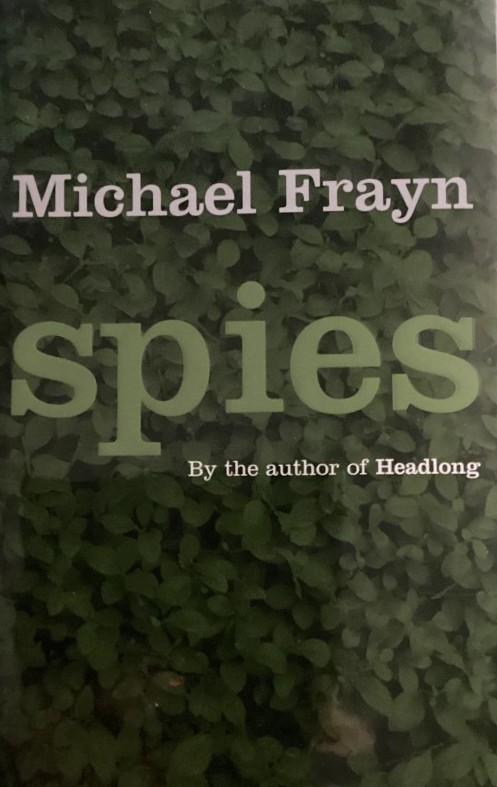Inspiring Older Readers
 posted on 31 Jan 2024
posted on 31 Jan 2024
Spies by Michael Frayn
Michael Frayn, now at the grand old age of 90, is probably best known as a playwright – Noises Off, Democracy, Copenhagen – but he’s not, I think, given enough credit for his excellent novel writing. Elsewhere on this site I have reviewed his second novel from 1966, The Russian Interpreter, but Spies from 2002 is by far my favourite.
It's a rather melancholy tale of an older man reflecting on incidents in his childhood that have continued to haunt him throughout his life. Stefan Weitzler revisits his childhood house and neighbourhood, when he was known as Stephen Wheatley, and a story unfolds about a time during the Second World War when his best (and only) friend, Keith, drops an astonishing secret in his lap. Keith claims that his mother, Mrs Heyward, is in fact a German spy and that it is their patriotic duty to uncover what secrets she is passing to the enemy.
We are never told the actual age of the boys but we can guess from their ingenuous characters and the way they are treated by their parents that they must be eleven or twelve and the story begins as if this is going to be a simple tale of childhood misadventure. But the tone of the book darkens quite quickly as adult realities begin to impose themselves on the boys.
Stephen is totally in thrall to Keith and he adopts a deferential attitude towards his friend that he thinks mirrors his inferior social status. As it happens, Keith does have reason to suspect his mother has a secret life – she makes a lot of visits to her sister who lives just down the road and when she claims to be going shopping she often seems to unaccountably ‘vanish’. But when Keith’s mother tells Stephen that she knows the boys have been spying on her, she unexpectedly takes Stephen into her confidence and everything changes for him.
Stephen also discovers that he has been spied on by a local girl, Barbara Berrill, who is a little older than him. She suggests that Mrs Heyward and her sister may have ‘lovers’ who they are meeting covertly and the boy begins to see that maybe Mrs Heyward isn’t a spy – instead there’s the uncomfortable spectre of sexuality that raises its head. Who is the tramp-like vagrant who she is seeming secretly leaving things for on the edge of town?
This is a mystery story and if you haven’t read it, I’m not going to give away too much that would be a spoiler. But it’s also a mystery story that will bear rereading several times – this is in fact the third time I’ve read it and, on each occasion, I’ve discovered more and more in the complex story that unfolds itself.
It’s the structure of the book as much as the plot that really packs the punch and this is something that John Mullan noted in his review of the book for The Guardian:
“The narrator knows what has really happened, and our sense of a plot relies on his holding back from explanation. This is a convention familiar to novel readers that is given a special justification in Frayn's novel. For this narrator is going back more than half a century to events of his wartime childhood. Now an old man, he has returned after all those years to the very place. His narration does not so much recall events as re-enact them. He uses the present tense to narrate his childhood experiences, helping him to inhabit the consciousness of himself as a boy. (For this reason the novel needs its epilogue, which supplies the information that the narrator could not convey when he was back in the mind of his child self.) Provided the novel can make us believe in the intensity with which its narrator re-experiences the past, it has found a way to make narrative logic out of his holding back his eventual discoveries. He so completely re-enters his past self that there can be no question of including knowledge that he only gained later.”
The book has the authentic feel of how we remember those points of time in the past which shaped us, stay with us and speak to how the childhood world rubs up against the adult world.
Paperback and hardback copies aren’t hard to find and aren’t expensive on the second-hand market.
Terry Potter
February 2024